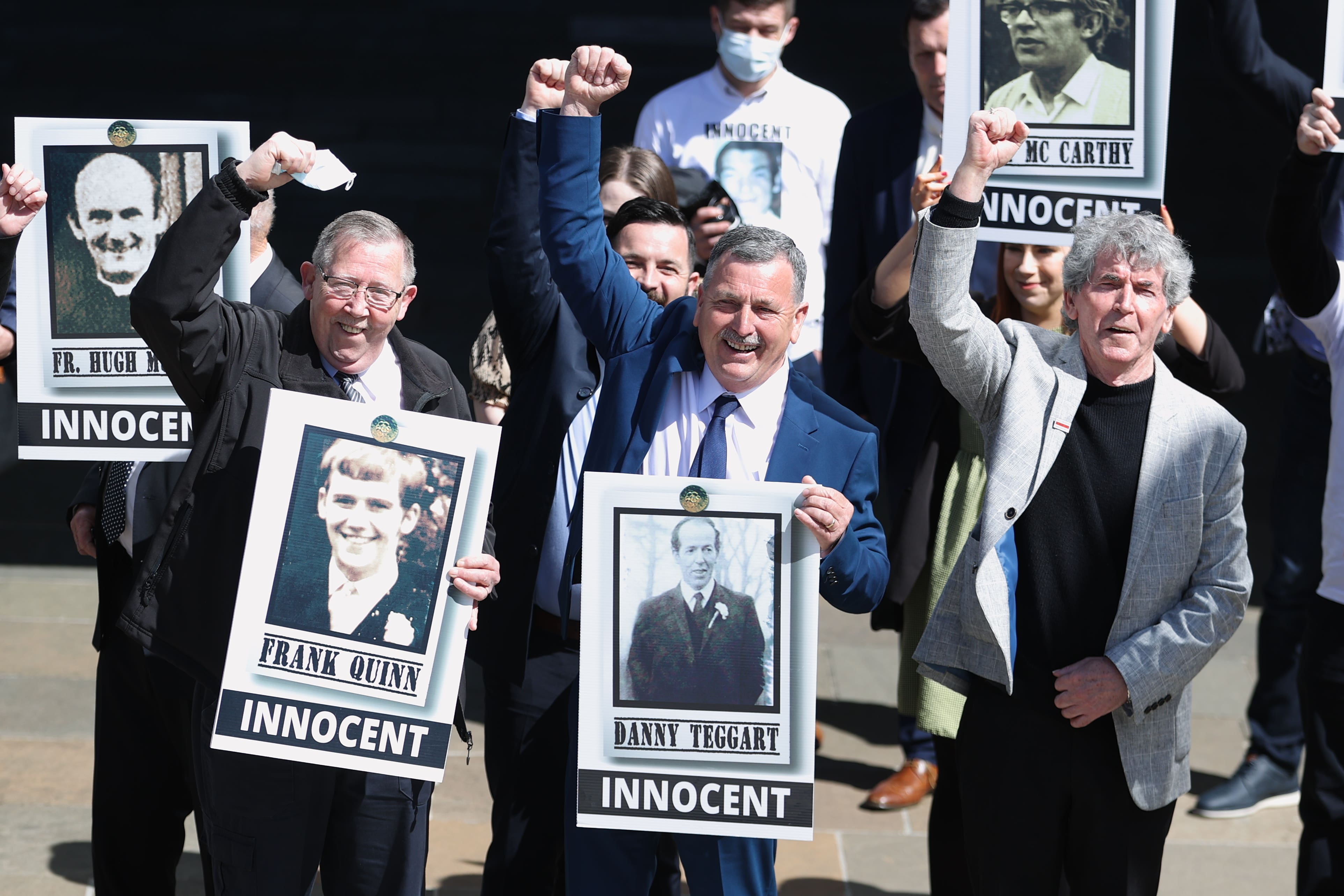Thirteen fresh inquests into Troubles deaths set for next four months
They come as the UK government’s legacy Bill, which proposes ending legal proceedings around the Troubles, goes through Parliament.

Your support helps us to tell the story
From reproductive rights to climate change to Big Tech, The Independent is on the ground when the story is developing. Whether it's investigating the financials of Elon Musk's pro-Trump PAC or producing our latest documentary, 'The A Word', which shines a light on the American women fighting for reproductive rights, we know how important it is to parse out the facts from the messaging.
At such a critical moment in US history, we need reporters on the ground. Your donation allows us to keep sending journalists to speak to both sides of the story.
The Independent is trusted by Americans across the entire political spectrum. And unlike many other quality news outlets, we choose not to lock Americans out of our reporting and analysis with paywalls. We believe quality journalism should be available to everyone, paid for by those who can afford it.
Your support makes all the difference.Thirteen inquests into deaths in Northern Ireland’s troubled past are set to take place in the next four months.
They will probe some of the most infamous atrocities that took place in the region, including the shooting of five people, including a priest and three teenagers at Springhill in west Belfast in July 1972.
Last year a long-running inquest into the shooting of 10 people in Ballymurphy in 1971 found they were all innocent victims.
It also concluded that the Army was responsible for nine of the 10 deaths, with not enough evidence to determine who fired the shot which killed the tenth victim.
The latest inquests, which include a number of deaths in which the army are believed to have been involved, are progressing while a proposed UK government Bill aims to end legal proceedings concerning Troubles-related conduct.
The inquests are part of a plan to progress more than 50 investigations involving 93 deaths between the 1970s and 2000 that had been mired in the coronial system for years.
Inquests due to start in January include a probe into the killing of three IRA men in Coagh, Co Tyrone in 1991, the shooting of 14-year-old Dessie Healey in west Belfast in 1971, the death of John Moran in the Kelly’s Bar bombing in 1972 and the killing of John McKearney and his nephew Kevin McKearney and married couple Charlie and Tess Fox in two separate loyalist attacks in Moy, Co Tyrone in 1992.
The first inquest into the death of Fergal McCusker from Maghera, believed to have been killed by the LVF in 1998, is also to open in January.
Two inquests are due to open in February. They will be probes into the killing of Hugh Gerard Coney as he tried to escape the Long Kesh internment camp in 1974, and the Springhill shootings.
An inquest into the killing of Sam Marshall outside Lurgan police station in 1990 is scheduled for March, while five inquests are planned to take place in April.
These include an inquest into the deaths of William Fleming and Danny Doherty who were shot dead in the grounds of the Gransha Hospital in Londonderry in 1984, and an inquest into the death of Seamus Dillon who was killed outside the Glengannon Hotel in Dungannon, Co Tyrone in 1997.
The other inquests to be heard in April include probes into the deaths of four IRA members killed in Clonoe, Co Tyrone in 1992 and the killing of Francis Bradley in Co Londonderry in 1986.
Meanwhile, the Lady Chief Justice’s office said three inquests have concluded with findings awaited in two and the outcome of a legal challenge pending in the other.
Those inquests are into the killing of Francis Rowntree in west Belfast in 1992, the killing of 10 protestant workmen by the Provisional IRA at Kingsmill in Co Armagh in 1976 and the killing of Leo Norney in west Belfast in 1975.
An inquest into the killing of Patrick Crawford in the grounds of the Royal Victoria Hospital in Belfast has commenced and has been adjourned with a new date to be fixed.
Meanwhile, 19 inquests have yet to listed, but preparatory work is ongoing in a number of these cases, the Lady Chief Justice’s office added.
Work continues amid uncertainty over whether all the inquests will be heard before the government’s legacy Bill is brought into law.
The controversial legacy legislation, which has been opposed by victims’ groups and most political parties, is continuing through Parliament.
The draft Bill would offer immunity from prosecution for people accused of Troubles offences as long as they co-operate with a new truth recovery body, and also halt future civil cases and inquests linked to killings during the conflict.